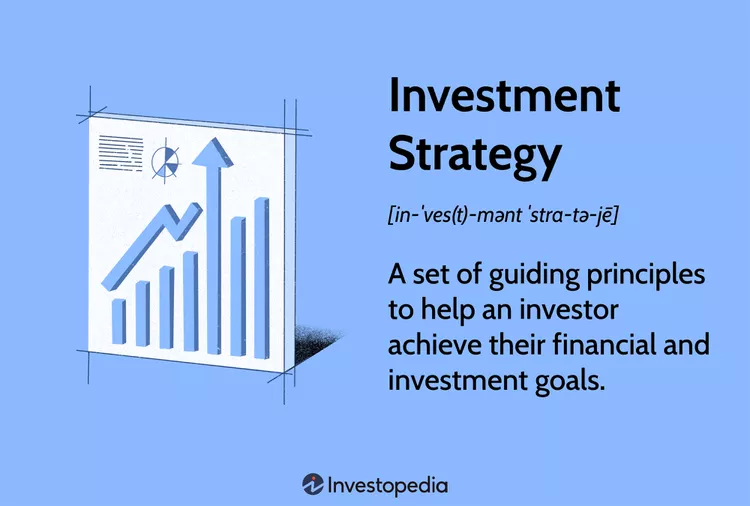Smart Investment Strategies Explained Simply: Stocks, Real Estate, Mutual Funds, and Crypto
Investment Strategies: Stocks, Real Estate, Mutual Funds, and Cryptocurrency
Introduction
Investing is one of the smartest ways to grow your money, but it can feel confusing if you are just starting out. There are many options available, and each one works differently. Four of the most popular investment strategies are:
-
Stocks
-
Real Estate
-
Mutual Funds
-
Cryptocurrency
Let’s explore each of them in detail — how they work, why people invest in them, what benefits they offer, and what risks you should know about.
1. Stocks – Owning a Share of a Company
When you invest in stocks, you are buying a small part of a company. This small part is called a share. If the company performs well, the value of your share usually increases.
How You Can Earn from Stocks
-
Capital gains: Buy a share at a lower price and sell it later at a higher price. Example: Buying a share for $50 and selling it for $80.
-
Dividends: Some companies share their profits with investors in the form of cash payments.
Advantages
-
Growth potential: If the company grows, your money grows with it.
-
Liquidity: You can easily buy and sell stocks on stock exchanges.
-
Ownership: You actually own part of the company.
Risks
-
Volatility: Stock prices can rise or fall daily.
-
Company failure: If the business does poorly, the share price can drop heavily.
-
Emotional decisions: Many beginners panic when prices fall and end up selling too early.
Simple Advice
-
Do not put all your money in one company.
-
Think long term — history shows stocks grow best over years, not weeks.
2. Real Estate – Wealth Through Property
Real estate means investing in land, houses, apartments, shops, or offices. Many wealthy people built their fortunes by holding property over time.
How You Can Earn from Real Estate
-
Rental income: You can earn steady monthly income by renting out your property.
-
Price appreciation: Over years, the value of land and property often increases.
-
Flipping: Some investors buy a house, renovate it, and sell it quickly for a profit.
Advantages
-
Tangible asset: You can see and use it, unlike digital investments.
-
Stable income: Rent provides regular cash flow.
-
Hedge against inflation: Property values usually rise when the cost of living rises.
Risks
-
High entry cost: Buying property requires a large amount of money.
-
Low liquidity: You cannot sell a house quickly like you sell a stock.
-
Market cycles: Prices can fall if the economy slows down.
Simple Advice
If you cannot afford to buy full property, you can invest in Real Estate Investment Trusts (REITs). They allow you to invest in property with smaller amounts of money, just like buying a stock.
3. Mutual Funds – Investing as a Group
Mutual funds collect money from many investors and put it into a variety of assets such as stocks, bonds, or both. A professional fund manager decides where the money goes.
How You Can Earn from Mutual Funds
-
Growth in value: If the assets inside the fund increase in price, your share of the fund grows.
-
Dividends/interest: Some funds also pay income from the stocks and bonds they hold.
Advantages
-
Diversification: Your money is spread across many assets, reducing risk.
-
Professional management: Experts handle research and decisions for you.
-
Beginner-friendly: You don’t need deep knowledge of the stock market.
Risks
-
Management fees: You pay a small cost for the service of the manager.
-
No guarantee: Funds can still lose money if the market goes down.
-
Less control: You cannot choose individual stocks inside the fund.
Simple Advice
If you are a beginner, mutual funds or index funds are one of the safest and easiest ways to start investing. You don’t need to pick winners yourself — the fund spreads your money automatically.
4. Cryptocurrency – The Digital Revolution
Cryptocurrency (like Bitcoin, Ethereum, Solana) is a digital currency built on blockchain technology. Unlike traditional money, it is not controlled by governments or banks.
How You Can Earn from Crypto
-
Price increase: Buy coins at a low price and sell them at a higher price.
-
Staking: Some cryptocurrencies reward you for holding coins in a special wallet.
-
Trading: Some people try to make profits by buying and selling quickly.
Advantages
-
High growth potential: Some coins have increased in value by thousands of percent.
-
Accessibility: You can buy and sell any time, day or night.
-
Future technology: Many believe blockchain will change how money works.
Risks
-
Volatility: Prices can change wildly within hours.
-
Security issues: If your wallet or exchange is hacked, you may lose your coins.
-
Uncertainty: Governments are still figuring out how to regulate crypto.
Simple Advice
-
Only invest money you can afford to lose.
-
Keep most of your investments in safer options like stocks or funds, and treat crypto as a small, experimental part of your portfolio.
Conclusion
Each investment strategy — stocks, real estate, mutual funds, and cryptocurrency — has its own strengths and weaknesses.
-
Stocks offer ownership and growth but are volatile.
-
Real estate provides stability and income but needs more capital.
-
Mutual funds are simple and diversified, great for beginners.
-
Cryptocurrency is exciting but risky, suitable for only a small portion of your money.
The smart investor does not put everything in one basket. Instead, spread your money across different options. This way, you balance risk and reward while building wealth over time.

